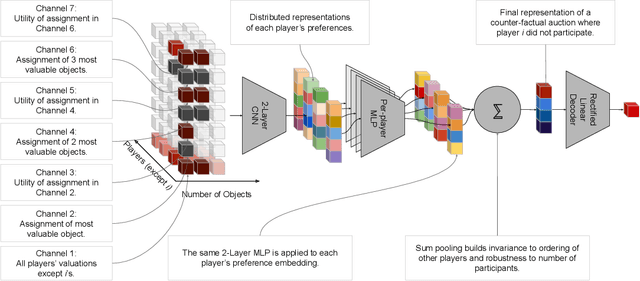A Neural Architecture for Designing Truthful and Efficient Auctions
Paper and Code
Jul 11, 2019


Auctions are protocols to allocate goods to buyers who have preferences over them, and collect payments in return. Economists have invested significant effort in designing auction rules that result in allocations of the goods that are desirable for the group as a whole. However, for settings where participants' valuations of the items on sale are their private information, the rules of the auction must deter buyers from misreporting their preferences, so as to maximize their own utility, since misreported preferences hinder the ability for the auctioneer to allocate goods to those who want them most. Manual auction design has yielded excellent mechanisms for specific settings, but requires significant effort when tackling new domains. We propose a deep learning based approach to automatically design auctions in a wide variety of domains, shifting the design work from human to machine. We assume that participants' valuations for the items for sale are independently sampled from an unknown but fixed distribution. Our system receives a data-set consisting of such valuation samples, and outputs an auction rule encoding the desired incentive structure. We focus on producing truthful and efficient auctions that minimize the economic burden on participants. We evaluate the auctions designed by our framework on well-studied domains, such as multi-unit and combinatorial auctions, showing that they outperform known auction designs in terms of the economic burden placed on participants.
 Add to Chrome
Add to Chrome Add to Firefox
Add to Firefox Add to Edge
Add to Edge